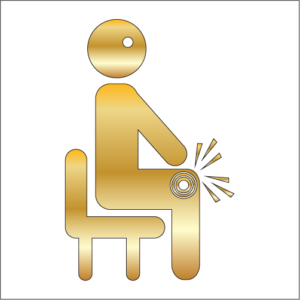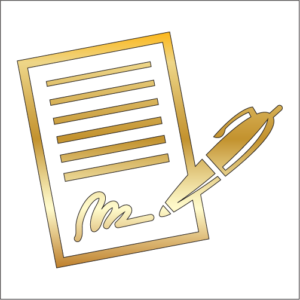Personal injury implies any type of injury sustained in accidents. These types of injuries may arise from car accidents, slip and fall accidents, defective products, or wrongful death claims. On the other hand, bodily injury is more limited and may imply injuries sustained by another person, usually in a car accident.
Services

If you are riding in an Uber and your driver gets into an accident that causes you injuries, Uber does have an accident policy. That policy covers the driver up to $1 million in liability, which means you will be covered for up to $1 million in damages for your injury.

The laws enforced by EEOC protect you from employment discrimination when it involves: Unfair treatment because of your race, color, religion, sex (including pregnancy, gender identity, and sexual orientation), national origin, disability, age (age 40 or older), or genetic information.

When a worker is injured on the job, he or she can bring a workers’ compensation claim. Workers’ compensation benefits are awarded without the need to prove fault on the employer’s part. However, in some cases, the injured worker can also bring a third-party liability claim. “Third-party liability” refers to bodily injury caused to a person because of a negligent or reckless third party’s actions or omissions.

A slip and fall injury, also known as a trip and fall, is a premises liability claim, a type of personal injury claim or case based on a person slipping (or tripping) on the premises of another and, as a result, suffering injury. It is a tort. A person who is injured by falling may be entitled to monetary compensation for the injury from the owner or person in possession of the premises where the injury occurred.

Crime victim compensation is a government program to reimburse victims of violent crimes- such as assault, homicide, rape, and, in some states, burglary – as well as their families for many of their out-of-pocket expenses. Every state has a crime victim compensation program.

As a business owner, damage to your property, office space, or inventory is never just a “small setback.” It can mean a loss of hours of operation and sales, which can affect you, your company, and the employees who rely on you. You file a claim with your insurance company, and it is denied. You need someone on your side to fight. For you…and for your business.

Asset recovery, also known as investment or resource recovery, is the process of maximizing the value of unused or end-of-life assets through effective reuse or divestment. While sometimes referred to in the context of a company undergoing liquidation, Asset recovery also can describe the process of liquidating excess inventory, refurbished items, and equipment returned at the end of a lease.

A contract is a legally binding agreement between two parties that details the duties and responsibilities of each party. Contracts may be oral or in writing, although most contracts must be in writing in order to be legally enforceable. Some examples of this include marriage contracts, and contracts involving amounts of money greater than $500. Oral contracts are more challenging to enforce and should be avoided whenever possible.


Personal injury implies any type of injury sustained in accidents. These types of injuries may arise from car accidents, slip and fall accidents, defective products, or wrongful death claims. On the other hand, bodily injury is more limited and may imply injuries sustained by another person, usually in a car accident.

If you are riding in an Uber and your driver gets into an accident that causes you injuries, Uber does have an accident policy. That policy covers the driver up to $1 million in liability, which means you will be covered for up to $1 million in damages for your injury.

The laws enforced by EEOC protect you from employment discrimination when it involves: Unfair treatment because of your race, color, religion, sex (including pregnancy, gender identity, and sexual orientation), national origin, disability, age (age 40 or older), or genetic information.

When a worker is injured on the job, he or she can bring a workers’ compensation claim. Workers’ compensation benefits are awarded without the need to prove fault on the employer’s part. However, in some cases, the injured worker can also bring a third-party liability claim. “Third-party liability” refers to bodily injury caused to a person because of a negligent or reckless third party’s actions or omissions.

A slip and fall injury, also known as a trip and fall, is a premises liability claim, a type of personal injury claim or case based on a person slipping (or tripping) on the premises of another and, as a result, suffering injury. It is a tort. A person who is injured by falling may be entitled to monetary compensation for the injury from the owner or person in possession of the premises where the injury occurred.

Crime victim compensation is a government program to reimburse victims of violent crimes- such as assault, homicide, rape, and, in some states, burglary - as well as their families for many of their out-of-pocket expenses. Every state has a crime victim compensation program.

As a business owner, damage to your property, office space, or inventory is never just a “small setback.” It can mean a loss of hours of operation and sales, which can affect you, your company, and the employees who rely on you. You file a claim with your insurance company, and it is denied. You need someone on your side to fight. For you…and for your business.

Asset recovery, also known as investment or resource recovery, is the process of maximizing the value of unused or end-of-life assets through effective reuse or divestment. While sometimes referred to in the context of a company undergoing liquidation, Asset recovery also can describe the process of liquidating excess inventory, refurbished items, and equipment returned at the end of a lease.

A contract is a legally binding agreement between two parties that details the duties and responsibilities of each party. Contracts may be oral or in writing, although most contracts must be in writing in order to be legally enforceable. Some examples of this include marriage contracts, and contracts involving amounts of money greater than $500. Oral contracts are more challenging to enforce and should be avoided whenever possible.